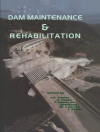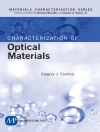Turbulent drag reduction by additives has long been a hot research
topic. This phenomenon is inherently associated with multifold
expertise. Solutions of drag-reducing additives are usually
viscoelastic fluids having complicated rheological properties.
Exploring the characteristics of drag-reduced turbulent flows calls
for uniquely designed experimental and numerical simulation
techniques and elaborate theoretical considerations. Pertinently
understanding the turbulent drag reduction mechanism necessities
mastering the fundamentals of turbulence and establishing a proper
relationship between turbulence and the rheological properties
induced by additives. Promoting the applications of the drag
reduction phenomenon requires the knowledge from different fields
such as chemical engineering, mechanical engineering, municipal
engineering, and so on. This book gives a thorough elucidation of
the turbulence characteristics and rheological behaviors, theories,
special techniques and application issues for drag-reducing flows
by surfactant additives based on the state-of-the-art of scientific
research results through the latest experimental studies, numerical
simulations and theoretical analyses.
* Covers turbulent drag reduction, heat transfer reduction,
complex rheology and the real-world applications of drag
reduction
* Introduces advanced testing techniques, such as PIV, LDA, and
their applications in current experiments, illustrated with
multiple diagrams and equations
* Real-world examples of the topic’s increasingly important
industrial applications enable readers to implement cost- and
energy-saving measures
* Explains the tools before presenting the research results, to
give readers coverage of the subject from both theoretical and
experimental viewpoints
* Consolidates interdisciplinary information on turbulent drag
reduction by additives
Turbulent Drag Reduction by Surfactant Additives is
geared for researchers, graduate students, and engineers in the
fields of Fluid Mechanics, Mechanical Engineering, Turbulence,
Chemical Engineering, Municipal Engineering. Researchers and
practitioners involved in the fields of Flow Control, Chemistry,
Computational Fluid Dynamics, Experimental Fluid Dynamics, and
Rheology will also find this book to be a much-needed reference on
the topic.
Sobre el autor
Feng-Chen Li, Harbin Institute of Technology, China
Professor Feng-Chen Li received his Ph.D. from Kyoto University in
Japan, before becoming one of the members of the turbulence control
community. A number of new findings have been achieved from
collaborative work with colleagues and he recently initiated a
pioneering work on viscoelastic-fluid-based nanofluid. Professor Li
has published over 100 publications, including book chapters,
journal papers and contributions at international conferences.
Bo Yu, China University of Petroleum (Beijing), China
Professor Bo Yu obtained a Ph.D. degree from Xi’an Jiaotong
University. He has been a full professor of the Department of Oil
& Gas Storage and Transportation of China University of
Petroleum at Beijing since 2005. Hiscurrent research interests
include: Turbulent Flow; Computational Fluid Dynamics; Numerical
Heat Transfer; Non-Newtonian Fluid Dynamics; Long-distance
Transportation Technology of Waxy Crude Oil. Having published more
than 50 international journal papers, he also has many awards.
Jin-Jia Wei, Professor, Xi’an Jiao Tong University, China
Professor Jin-Jia WEI obtained a Ph.D. degree from Xi’an
Jiaotong University in China and another Ph.D degree from Kyushu
University. In 2005, he became a full professor of State Key
Laboratory of Multiphase Flow in Power Engineering of Xi’an
Jiaotong University. His current research interests include:
Turbulent Drag Reduction by Surfactant Additives and its
Applications for Practical Engineering in the District
Heating/Cooling System; Particle-Fluid turbulent flows in pump and
pipe system; Enhanced boiling heat transfer; Thermal utilization of
solar energy; Computational fluid mechanics and Brownian dynamics
simulation. He has published more than150 journal and conference
papers.
Yasuo Kawaguchi, Tokyo University of Science, Japan
Professor Yasuo Kawaguchi obtained his Ph.D. degree from Kyoto
University in Japan. In April 2005, he became a full professor of
Department of Mechanical Engineering, Faculty of Science and
Technology, Tokyo University of Science. His current research
interests include: Turbulent Drag Reduction by Surfactant Additives
and its Applications for Practical Engineering in the District
Heating/Cooling System; Drag reduction of water soluble polymer and
is application for economization of ship propulsion; Gas-Solid
particle turbulent flows relating to environmental problem, pump
and pipe system; Application of laser techniques to thermal and
fluid flow. He has published more than150 journal and conference
papers.












